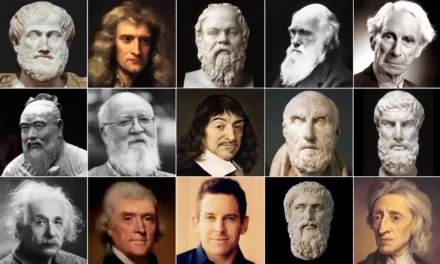
Are you a good critical thinker?
Y
ou may think that you are a pretty good critical thinker already. Well, you might be, and if so congratulations! But if you are like most people, what you are referring to as being a good critical thinker is different from what I am referring to. Sure, you may say you are constantly thinking and you are doing it effectively. Every single minute of the day you are thinking about what to do, how to do it, how to interpret the information you are presented with, how to parent your children, how to react to the things you were asked to do at work, and more. At this very moment you are likely thinking about whether what I’m saying makes sense.
Mental shortcuts and other flaws in reasoning result in the pervasive existence of fallacies, prejudices and biases in our thinking.
The problem is that human thinking is often flawed. We have evolved certain mental shortcuts that were helpful to survive and have offspring when we lived in the African savannah. At that time a quick application of one of those mental shortcuts may have represented the difference between living another day or being some predator’s meal. But these mental shortcuts and other flaws in reasoning result in the pervasive existence of fallacies, prejudices and biases in our thinking. These flaws in thinking lead us to war, conflict between peoples or members of a family, frustration, and unnecessary pain and suffering.
To improve life for you and everyone around you you need to learn to overcome these mental shortcomings we are all born with. Being an unreflective thinker is a natural state for us, whereas becoming a critical thinker requires us to learn to think about our own thoughts. Critical thinking is not a natural state for our minds. We need to consciously work on it. You must not only discipline your thinking through an understanding of your own thought processes, but you must also practice that knowledge daily.
You may also feel you are very smart or you have three doctorate degrees and you don’t need anyone telling you how to become a better thinker. But in this case you would be confusing two very distinct concepts. First of all, intelligence and thinking skills are two different things. You may indeed have an IQ of 180 and still be a poor thinker. This is because thinking is a skill, something you learn and practice. Intelligence is something that may be innate in you, and perhaps through systematic practice you have developed more of it. To give you an analogy, you may have the body of Arnold Schwarzenegger and still be a terrible wrestler. That is because muscle size or strength is to wrestling skills what intelligence is to thinking skills. Also, you may be very smart and have a PhD in astrophysics and still be easily manipulated by a charismatic and possibly evil leader, for instance. Just look at what happened to the most intellectually advanced nation in Europe in the 1930s if you don’t believe me.
Thinking is a skill, something you learn and practice.

DON’T LET PEOPLE INFLUENCE YOU WITHOUT YOU EVEN REALIZING!
Enter your information to get our FREE practice exercises so you can train yourself to recognize subtle persuasion techniques.
Or, you may feel you do not pay attention to the news media, hate politics and ignore what politicians say, and only read reputable sources of information and so none of this matters to you. But even if you do not watch the news at all, you do not live in total isolation. You still one way or another hear what’s going on. You talk to friends or colleagues. You see the headlines in the newspapers as you walk by the magazine stand. Your phone brings up news alerts. In this day and age it’s very hard to really stay away from all this. And if you feel you are above being influenced by the content put out by the news media, TV, movies or Internet websites, think again. Almost all these sources are presenting a biased reality to its audience, while of course trying to persuade you they are neutral and unbiased. What you perceive of what’s going on, if you watch uncritically, is a reflection of what they want you to know. It may or may not be a true reflection of what is really important, or may or may not be an objective and unbiased perception of reality.

Our goal at Thought Academy is to provide you with the information and tools you need to help you move from the position we all start at, that is, of unreflective thinkers, to one of strong critical thinking.

DON’T LET PEOPLE INFLUENCE YOU WITHOUT YOU EVEN REALIZING!
Enter your information to get our FREE practice exercises so you can train yourself to recognize subtle persuasion techniques.







0 Comments